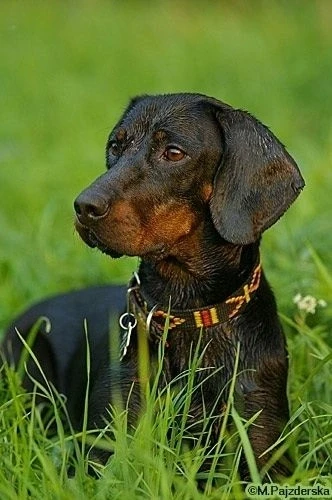
Polish Hunting Dog
About
The Polish Hunting Dog is a devoted, intelligent, and energetic breed that excels in active households where it can participate in physical activities and mental challenges. With their loyal and protective nature, they make excellent companions for families and individuals who enjoy outdoor adventures and can provide the exercise and stimulation they need. Their combination of hunting expertise, gentle temperament, and dedication to their family makes them a cherished and versatile companion for those who can meet their needs.
 Breed Size
Breed Size
-
Weight (Male)
22-26 kg
-
Weight (Female)
22-26 kg
-
Height (Male)
1-1 sm
-
Height (Female)
1-1 sm
 Coat
Coat
-
Fur Type
-
Color
One color
 Care
Care
-
Walk
>60 minutes/day
-
Breed Size
S
-
Demeanor category
Outgoing
 Breed Traits
Breed Traits
-
Barking
-
Good with young children
-
Drooling
-
Energy level value
-
Grooming frequency value
-
Good with other dogs
-
Trainability
 Breeds Club Recognition
Breeds Club Recognition
-
Trainability Category
>Easy Training
